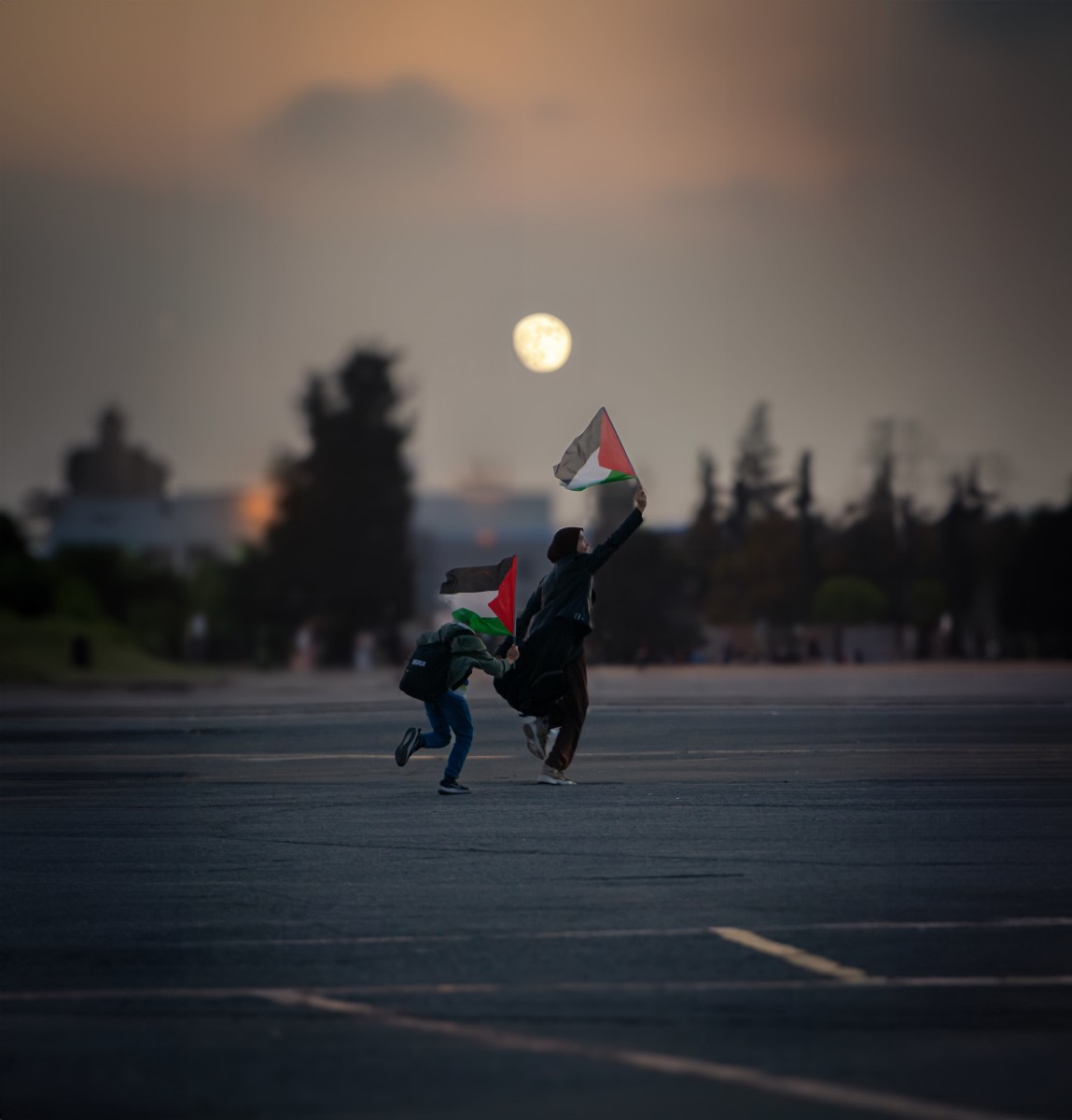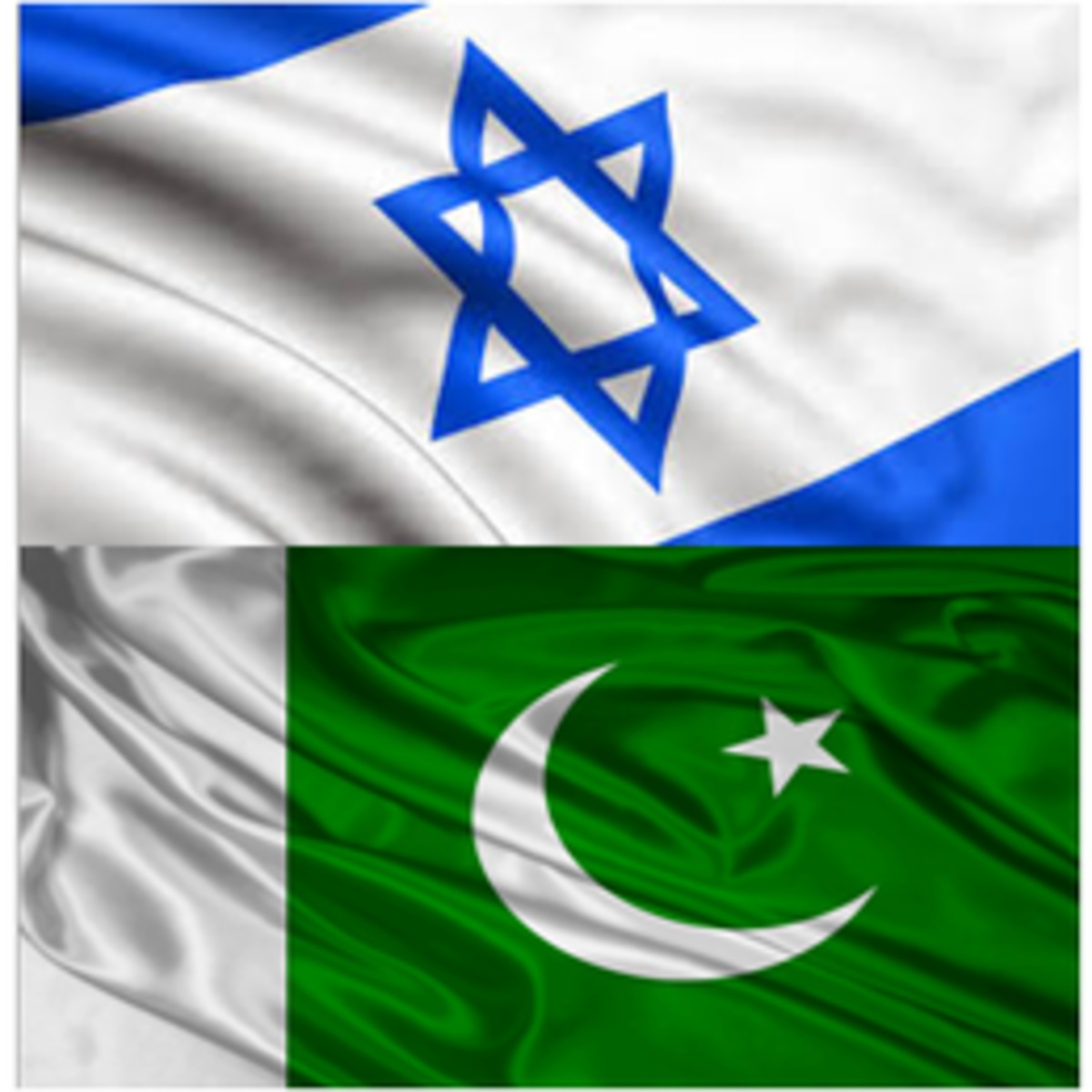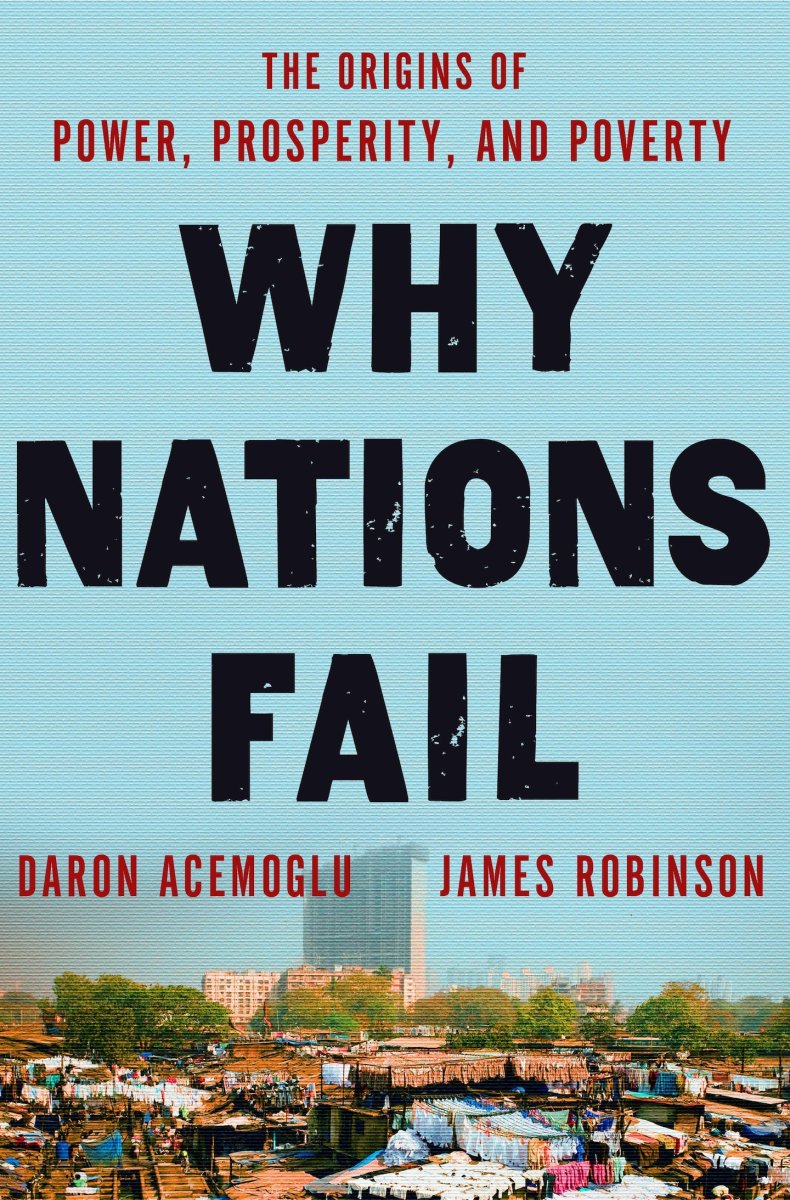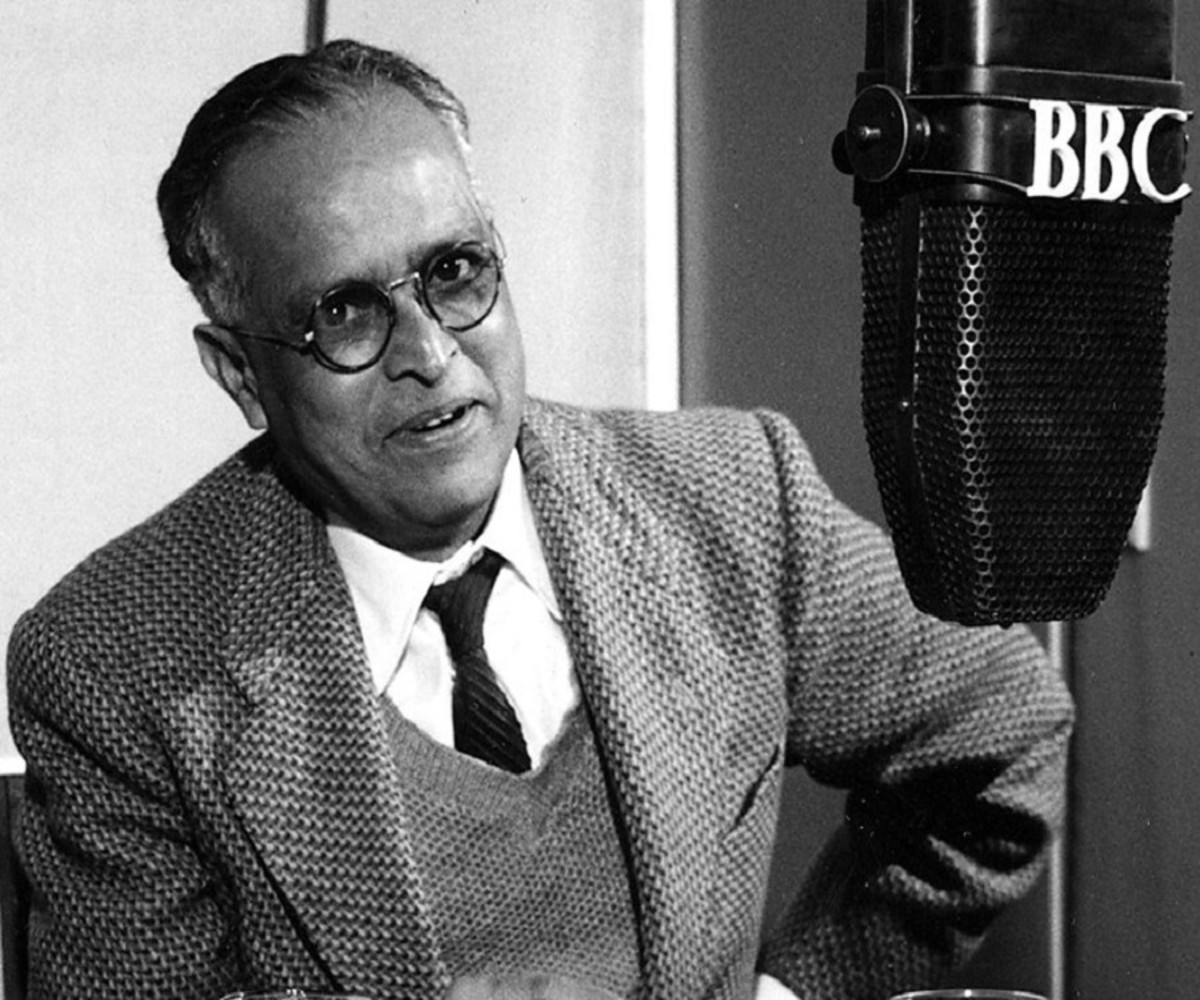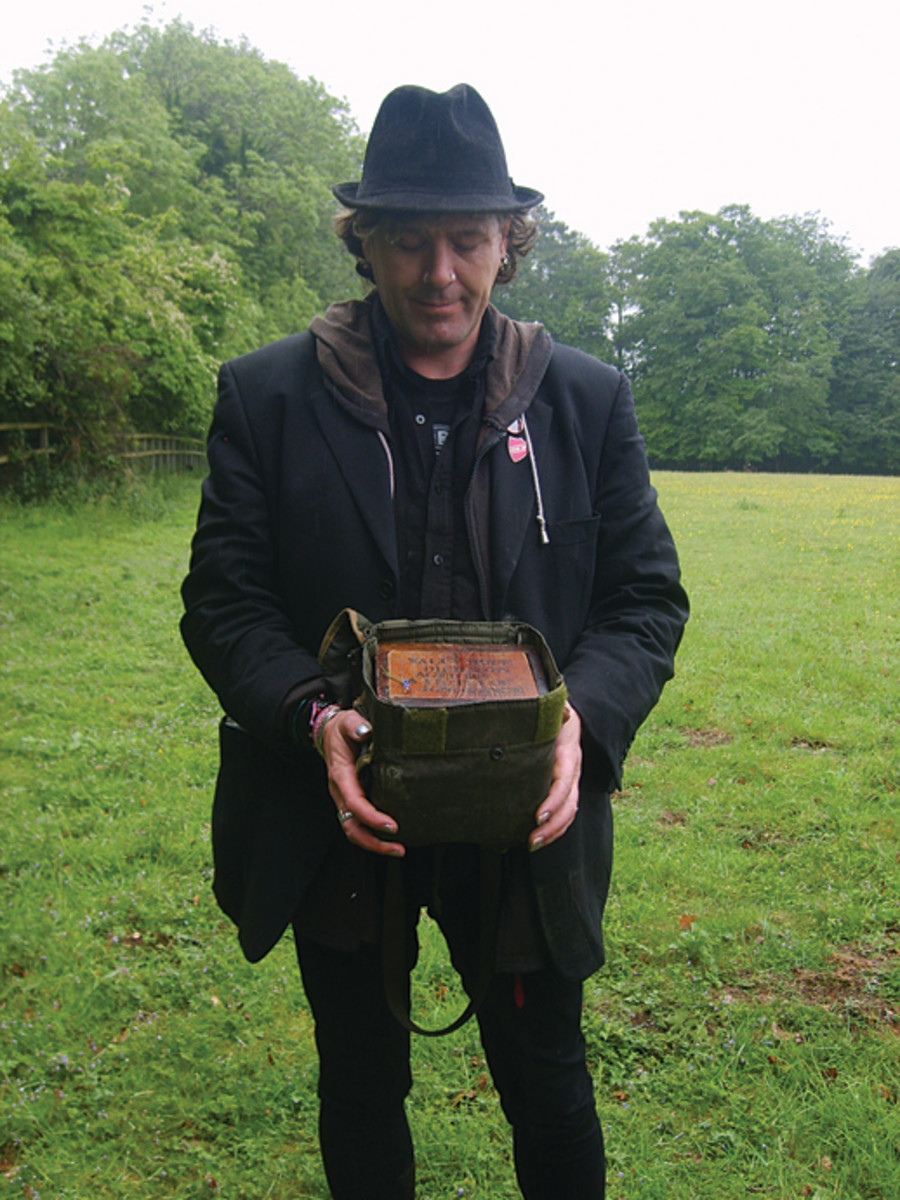ISRAEL: The Two Halves of the Nation
In 1999, the year before he died, my father published in English a book that he hoped would make a difference to the fate of Israel. He had published on this subject many times in Hebrew, but he eventually gave up on the local readership. He decided to share his outlook on Israel with outsiders.
- Amazon.com: Israel: The Two Halves of the Nation: Amnon Katz: Books
Amazon.com: Israel: The Two Halves of the Nation: Amnon Katz: Books
From the Introduction: "The reader, starting into these pages, may be wondering: Who is the writer? What is the intended audience? Whose best interests are being promoted?
Everything written here is dedicated to Israel, to Palestine. Not as two separate entities but as one. It is written from an old fashioned point of view and holds that one country must be one nation. 'Israel' and 'Palestine' are two names for the same miniscule strip of land. In its current truncated borders, it is somewhat less than a country. It can hardly sustain one nation, let alone two. It cries out to be reunited and restored rather than to be further mutilated and splintered.
The book
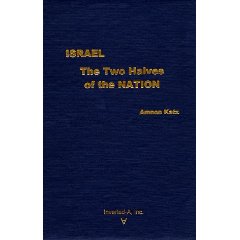
Why Should you Read this Book?
Why should you read this book, of all the many books offering solutions to the unrest in the Middle East and suggesting compromises between Israelis and Palestinians? This book is different. It's not suggesting a compromise. It offers a positive solution -- one that could work for everyone.
Frequent Misconceptions
- Did you know that not every Israeli is a Jew?
- Did you know that Palestinians are not Arabs?
- Did you know that Palestinians and Israelis are descendants of the same people?
- Did you know that the conflict is not about religion, or culture, but about inclusion?
Excerpt from page 9 of my father's book: Committed to resurrecting the nation of Israel, the Zionist activists analyzed and reasoned what this meant and what it would take. They came to the conclusion that a nation meant land and that self sufficiency dictated farming. Converting to agriculture, spreading out, and holding land by tilling it were considered paramount.
... A whole new and unique set of values was created. Agriculture was the noblest calling. The most admired figure was the pioneer (HLFZ) -- a person who tilled the land in a new settlement. Physical labor was idolized and making a living by intellectual activity -- scorned.
My father describes (p. 45-46) the situation in Palestine under the British Occupation when he was a child:
One night in 1946, I was crouched in a dark street in formation with the rest of my scout group. We were playing soldiers. Two teen-aged girls, passing by, were startled when they noticed us. One of them reassured the other: "These are just our little AZL fighters, bless them." I felt proud to be so construed.
AZL and LHI did recruit at our age. Children would go out at night, at considerable risk, and smear the walls with the AZL logo, showing Palestine in the Balfour boundaries with a rifle superimposed. This was flanked by two little words; "Only thus" (RQ KK), meaning: no less than both sides of the Jordan, and no other way than by force of arms.
My parents were law abiding people. When pushed to extremes, they had done some illegal things to extricate us out of Europe. But they had never even considered entering Palestine illegally. Once there, they had dutifully filed the necessary papers to become British subjects. (Tschernihovsky, the poet, co-signed their application as a reference.) They agreed that some amount of resistance to the British was a necessary evil. Out and out rebellion was madness, as well as immoral. My father longed for some sort of autonomy within the British Empire. He expected us to remain under British protection for a long time to come.
One of the extreme slogans was "in blood and fire Judea fell, in blood and fire shall she rise again." My father said: "Is that logical? If blood and fire caused it to fall, why should they be expected to have the opposite effect?"
....It was in that period that Eytan Feldman showed me a small automatic pistol. It was hidden in a stack of towels in a closet at his home. The gun belonged to his father who held a command position in the Hagana. At the point, the death penalty was in effect for possession of firearms or even ammunition. No amount of repression can tame the human spirit.
Jews and Israelis are not the Same
Most people realize that not every Jew is an Israeli. They know that there are people who are Jewish and citizens of countries other than Israel. But did you know that not every Israeli is a Jew?
Most of the people who revived Hebrew in the Land of Israel, also known as Palestine under the British Mandate, were not practicing Jews. Many were atheists, some were agnostic, and a considerable number were pagans, intent on reviving the ancient culture of the area described in the Book of Judges.
If you meet someone whose native language is Hebrew, don't assume that person is a Jew. Zionists aimed at recreating the culture found in the area where Hebrew was once spoken by all. They were opposed in this by most of the Jews of Europe.Religious Jews felt Hebrew was too sacred to be spoken. They felt Israel was a holy place best seen from afar.
European Jewery were city dwellers who wanted to remain under the protection of European states. Zionists were idealists who despite their high educational attainments went back to the land. They took up agriculture in the hope of achieving independence.
You may have heard it said that the State of Israel was created to give survivors of of the Holocaust a place to go. Nothing could be further from the truth.
Zionism predates the holocaust. It was an ideological movement founded in the 19th century. Zionists lived peacefully, side by side with the fellahin who were the native people of the land. The battle for Israeli independence was fought first against the British Occupation, and later against neighboring Arab nations. It was not a battle against the fellahin who were the local people. However, many fellahin did leave during the war in 1948. (and some were driven out), and the biggest, worst mistake that Israel made was not allowing them to return once the war was won..
This mistake was both a moral lapse and a grave tactical error. In the case of Israel, as in many other situations, the right thing to do was also the only thing that could possibly have worked.
Palestinians and Arabs are not the Same
Many people, especially those living in the United States, seem to be confused about what an Arab is. I have even met people who use the word Arab and Moslem interchangeably. No, it is not true that every Moslem is an Arab. Islam is a religion whose practitioners live all over the world and have many different nationalities, and belong to different ethnicities and speak different languages. Some Moslems are European. Some are African. Some are Asian. Some Moslems speak Persian. Some speak Turkish. Some speak Slavic or other Indo-European tongues, and some even speak East-Asian tone languages. There are Moslems living all over the world, and knowing that someone is a Moslem will not help you predict his skin tone, language or political affiliation.
By the same token, not everyone who is an Arab is a Moslem. It is true that Islam originated on the Arabian peninsula and that the Khoran is written in Arabic. But many people who speak Arabic and whose ancestors originated on the Arabian peninsula are not Moslem. Quite a sizeable number of them are Christian, and others still belong to different faiths. Some Arabs are even Jewish. (There used to be a sizeable number of Jewish communities living in the Arab world, but in recent years that number has dwindled.)
Considering the general confusion about Arabs and Moslems, I suppose it should not be surprising that an even higher level of fuzzy thinking comes into play when people mention Palestinians.
Palestinians are not Arabs. Their ancestors did not come from the Arabian peninsula. Although most natives living in Palestine at the time of the British Mandate spoke Arabic, they were not all Moslem. Many were Christians. Others practiced a form of Judaism, even though they did not call it that.
If you asked the people of the land what they were, they would not say that they were Arabs. (The whole Pan-Arabic Nationalism movement, which was largely revived by the British as a way to fight the Turks, hardly touched the local people of Palestine.) If you asked them what they were, they would answer simply: fellahin. What does that mean? It means farmers.
Excerpt from pages 55-57 of my father's book: As late as the second century A.D., Judea was settled by farmers from Galilee to the Negev. It was they who challenged the Roman Empire in the many insurrections. When the Jewish rebellion was crushed in 70 A.D. (and the Bar Kokhva rebellion 60 years later) a rift grew between the religious leadership known as 'learned scholars' and the farmers of the countryside... The 'farmers' were out of contact with the Jewish communities of the world. They had no collective memory of their rift with the 'learned scholars'. They knew nothing about Zionism until new neighbors settled around them. They could not know that Zionism had vindicated their forefathers. Of the many revoluntionary tenets that Palestinian Zionism upheld, one was first and foremost: That land was more important than religion!
Israelis and Palestinians are the Same
So who were these farmers and how did they get there? The answer is: they didn't get there -- they never left! They were always there. They stayed with the land. Who are they? They are the descendants, in an unbroken line, of the same people who lived there since pre-Biblical times.
How do we know this? There are three kinds of evidence:
- historical
- cultural
- genetic
From pages 68-69 of my father's book: "Corroborating material continues to come out. In the Ma'ariv Weekend Journal of September 9, 1989 we find a reportage by Adar Avisar and Shefi Gabai called "Genetic Bomb." A team of researchers from Tel Aviv University working on classifying human beings by race found that "Israeli Arabs" and Eurpoean Jews are genetically related. We skip the racial stuff, but quote some of the accompanying commentary. ..."Actually it was known years ago that the local Arabs have a strange custom -- they light candles at Hannukah and set mezuza on their doorsills... Many families are known as Masalma or converts to Islam."
Palestinians Never Resisted Assimilation -- Israel Wouldn't Let Them
The problem is not that the local people resisted the new government. The problem is not that anybody tried to convert the locals to Judaism. Far from it. The problem is that when local people left in fear during the war, they were not allowed to return. Those who stayed were not allowed to attend the Hebrew speaking public schools and were not permitted to serve in the Israeli military. They were segregated and denied the rights of ordinary citizens. Despite all of these stumbling blocks, many local people did become assimilated.
From pages 199-120 of my father's book: In the city of Ramla the local schools were not segregated. The remaining "Arab" population was not large enough to justify separate schools. In 1967, when the news of the outcome of the short "Six Day War" became known, an "Arab" child rushed breathlessly home to tell his mother: "Mother, we won!" "Who won?" asked his "Arab" mother. "We! Israel!" [Ma'ariv. 1968].
From page121 of my father's book: Joseph and Nehama Mara'i are a good looking couple. The color photos ... show a trim and fit man in slacks and a flannel shirt. he is balding. His smile appears intellectual and thoroughly Israeli. The woman by his side is slightly shorter, with wavy brown hair....They are featured in the weekend pictorial section of theMa'ariv daily newspaper datign Nov. 4, 1988. The reason for the article... is that they are a mixed couple. ... Jospeh Mara'i is an "Arab". He was five when his native village of Taibe was ceded to Israel... At fourteen he came across a brochure of the Israeli agricultural boarding school "The Green Village." He enrolled... "I had a dream ," Mara'i is quoted as saying, "that I am like everybody else, an equal citizen. I prayed that my children would be allowed to serve in Zahal [the Israeli army.]..."
If Israelis and Palestinians Can't Live Together -- There is no Future for Both Israel and Palestine
Israel/Palestine is a very small strip of land. It is hardly enough for one country. It will not support two. If Israelis and Palestinians can't live together, then they will die together. The neighboring countries are waiting to absorb whatever is left after the civil war that is currently raging there. Then there will be no Israel and no Palestine.
When my father died in the year 2000, I was unprepared. It was too soon. I was not so much upset by the idea that he would never again be in my daughter's life or in mine or in my mother's or my brother's. I was not upset so much by the idea that he would not be able to finish the university sponsored project that he was then working on. These things were sad, but they were not what bothered me the most. Somehow, I didn't think he would die before Israel was whole again. It was devastating to me that the words he wrote in this book had fallen on deaf ears and that he would never get a chance to speak out on its content. To save Israel was his fondest dream. I hope that by posting this here I may bring his dream of a united Israel a little closer to fruition. I'm not sure how, but I can only hope!
(c) 2009 Aya Katz
The video above is from a 1993 broadcast of "For the Record" on Alabama Public Television. The moderator was Lynn Sampson. Participating were my father and Dr. Anis Salib. I apologize for the annoying buzzing in the background. If you play with your audio balance on your computer, you might be able to reduce the static.
Palestinians are Not Arabs
Jonathan Ratosh's Sword Poems
Books and articles by Amnon Katz
- Why Simulators Are More Difficult to Fly Than Aircraft
Engineering technical paper: Why Simulators Are More Difficult to Fly Than Aircraft - Hoyle−Narlikar Quantization of Wheeler−Feynman Electrodynamics
- A New Transliteration of Hebrew into Standard Characters -- KATZ 9 (3): 306 -- Applied Linguistics
- http://www.amazon.com/exec/obidos/search-handle-url/ref=ntt_athr_dp_sr_1?_encoding=UTF8&search-t


